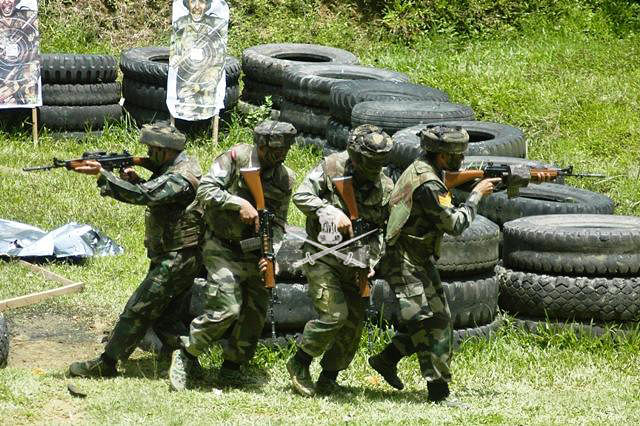Having a national security doctrine helps avoid ambiguity about dealing with a crisis and to avoid repeating the mistakes of the past.
This is the first article in a three-part series.
Thrice in the past decade, China has outlined its approach towards national security in a rapidly changing global environment in the form of White Papers. These clearly articulate growing aspirations, intent, and capability to shape the immediate and ‘near distant’ strategic environment in a manner that furthers its core national interests.
Other countries have done similar exercises. A distant, and peripheral, power like Australia has brought out a Defence White Paper every four years (2009, 2013, 2017). Australia’s reasons for doing this is to redefine for its people and strategic planners the various ways and means to remain relevant in a security environment. The doctrines call for a deft balancing of alliances, interests, and the challenges posed by a rampant expansion of Chinese influence.
The UK has carried out periodic Defence Reviews and issued White Papers at regular intervals. But a briefing paper for the House of Commons pithily observes: ‘Despite what one may expect, there were only eight defence reviews between 1945 and 2003/2004, including the Defence White Paper in 2003/2004.’ Since then, the UK has issued a comprehensive Strategic Defense Review (SDR) in 2010 and followed it up with one in 2015. Both these reviews depart from an earlier exclusive focus on security and embrace a ‘whole of government approach’ that is essential for orchestrating a national security strategy.
Noting with concern that it was being marginalised by an assertive US-led NATO in its ‘near abroad’, Putin’s Russia rethought its national security strategy in its goal to be a resurgent power. From 2008, Putin has reformed and restructured the Russian military in a manner that could have only been achieved by visionary leadership, unambiguous direction, and clearly articulated policy. Put into practice and form by Russia’s Chief of General Staff, Valery Gerasimov, it is a clear articulation of Putin’s ambitions for Russia and its validation in Ukraine and Syria has made the world sit up and take note of Russian power.
I have not mentioned the repeated US National Security Doctrines lest I be accused of the standard obsession with strategic thought of the world’s sole superpower. But it is a ‘no brainer’ to accept that clear articulation of strategic thought is a prerequisite for being taken seriously in the international community.
It is ironic that leave alone a National Security Doctrine or Strategic Defence Review, India has not yet produced a White Paper on Defence or National Security. Given the ancient Indian proclivity for transmission of wisdom through the spoken word, India’s security planners have often said: “We prefer hiding our strategies in a cloak of ambiguity rather than spelling out our intentions upfront.” Others ask: “When the chips are down, have not all organs of the state rallied together and delivered the necessary outcomes?”
To the former, I would say “Spell out your intentions clearly and use the ambiguity weapon to exercise your options to alter those intentions at will.” The latter argument, of course, falls flat in almost all the outcomes that India has experienced in war and conflict over the last seven decades barring the victory on the Eastern Front in 1971.
In Kargil, Indian sovereignty was violated and while there was no ambiguity about the need to evict the occupying Pakistani regulars and irregulars from the icy heights, the Indian state was not clear about the tools it needed to achieve this. The reason is there was no doctrinal clarity that pronounced: “Should Diplomatic efforts fail to resolve any crisis involving sovereignty, all tools of military power would be used to restore it.” Had that clarity been there, there would have been no doubts in the minds of the IAF to seek political clearance to use offensive air power within our geographical frontiers.
Lack of strategic direction in writing means that the possibility of repeating mistakes from the past are very high. In 1965, a similar occurrence in Chhamb needed political clearance for the IAF to swing into action and try to halt the marauding Pattons from making further inroads into Indian territory.
This piece has offered an international perspective on the necessity for a written articulation of strategic intent and a historical perspective on what the absence of a security doctrine can lead to. In subsequent pieces, I would endeavour to offer perspectives on what the contours of a national security doctrine could look like and why this is the right time to articulate one in the backdrop of some recent security challenges tackled well by the Modi Government.
Arjun Subramaniam is a former fighter pilot and recently retired as an Air Vice Marshal from the IAF. Author of ‘India’s Wars: A Military History 1947-197,.’ he is currently a Visiting Fellow at The Harvard Asia Center and Non-Resident Senior Fellow at the Mitchell Institute for Aerospace Power Studies.
 Eagle Eye will be a regular column from him as a contributing editor exclusively for The Print.
Eagle Eye will be a regular column from him as a contributing editor exclusively for The Print.



